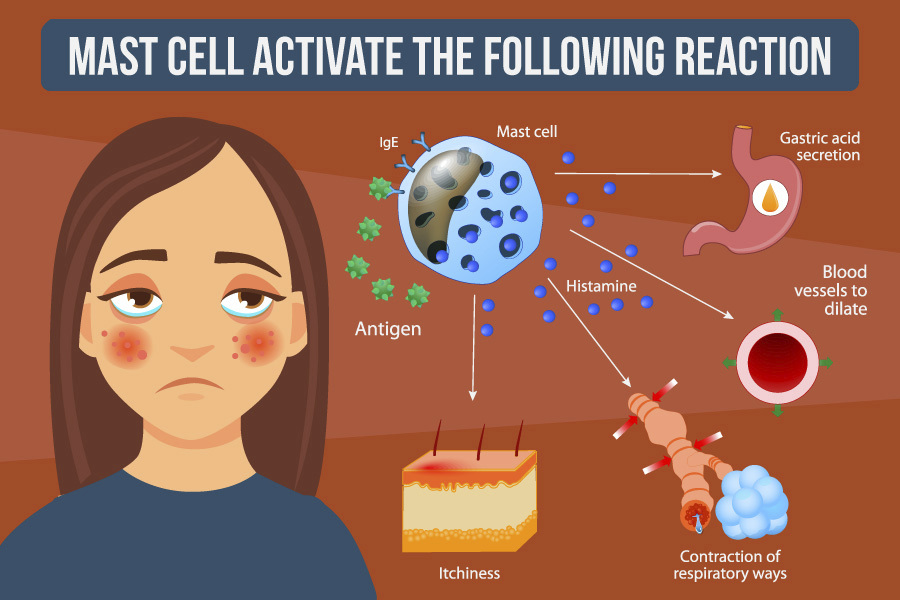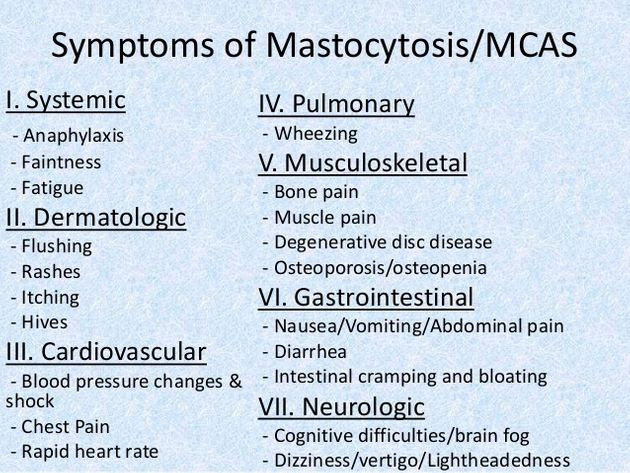What is MCAS?


What is Mast Cell Activation Syndrome (MCAS)?
Mast Cell Activation Syndrome (MCAS) is a condition in which mast cells — the immune cells responsible for releasing chemical mediators such as histamine and heparin — become overactive. This overactivity leads to a flood of inflammatory chemicals entering the bloodstream, potentially affecting multiple organs throughout the body.
Symptoms of MCAS can vary widely, but may include:
- Recurring allergies and skin conditions from childhood
- Unexplained anxiety
- Digestive issues, including IBS, SIBO, and GERD
- Insomnia and disturbed sleep
- Frequent headaches
- Poor wound healing
MCAS Triggers
Several factors can trigger mast cells to become overactive, including:
- Small intestinal bacterial overgrowth (SIBO)
- Imbalances in the gut microbiome
- H. pylori infection in the stomach
- Tick and insect-borne infections
- Mould and chemical exposures
- Underlying autoimmune conditions
- Genetic predispositions or gene variants
- Other conditions that mimic MCAS symptoms
Diagnosis of MCAS
Diagnosing MCAS can be challenging due to its systemic nature, affecting multiple organs and presenting with a wide range of symptoms. There is currently no single definitive test for MCAS. While blood tests measuring histamine and other mediators can provide helpful information, diagnosis is often a process of elimination combined with a thorough clinical assessment.
If you experience many of the symptoms listed above, MCAS could be a possible underlying factor. Accurate diagnosis and management require careful evaluation of triggers, underlying conditions, and your overall immune function.
